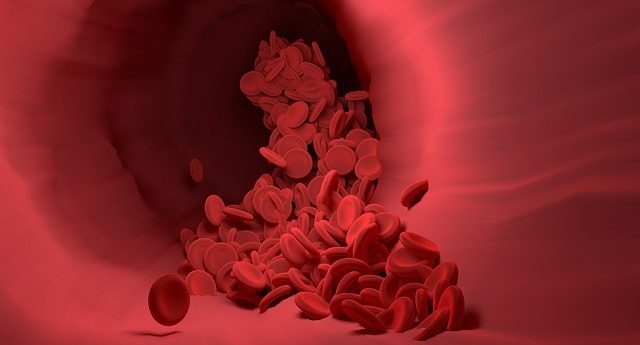Could a common arthritis drug help manage blood cancer-related symptoms?

Researchers have observed that methotrexate — a low-cost, commonly prescribed anti-arthritis drug — may also function as an effective symptomatic reliever for patients suffering certain blood cancer forms.
Polycythemia vera (PV) and essential thrombocythemia (ET) are two forms of blood cancer for which few current treatments provide effective relief of debilitating symptoms for patients. In a new, retrospective study, researchers from the University of Sheffield (UK) have assessed patients’ hospital records and observed that the commonly prescribed, low cost, anti-arthritis drug methotrexate, improved patients ET and PV-related symptoms, as well as helped normalize patients’ blood counts.
Approximately 3000 individuals in the UK are affected by PV or ET each year. Current, standard treatments for these blood cancer forms, whilst effective for controlling blood cell counts, provide patients with little relief from disease-related inflammatory symptoms.
Methotrexate is a WHO-listed essential medicine that has been administered and prescribed for more than 40 years for the treatment of arthritis, psoriasis and Crohn’s disease. The safety, effectiveness and low toxicity of methotrexate are therefore well established.
Frequently asked questions:
In this study, researchers examined the hospital records of 11 PV or ET patients who were taking methotrexate for another disease indication, predominantly rheumatoid arthritis.
Despite the small patient cohort identified and investigated, patients in receipt of low-dose methotrexate reported significantly lower disease-related symptom scores — assessed by patients’ myeloproliferative neoplasm-10 survey scores — compared with patients not taking methotrexate.
Martin Zeidler, lead study author from the Department of Biomedical Science at the University of Sheffield, concluded: “While we still need to undertake a clinical trial to validate these findings, our results are very encouraging and suggest that a simple drug that has been used for nearly 40 years to treat arthritis can provide significant relief to blood cancer sufferers. Patients we tested showed a pronounced improvement in symptoms, something conventional treatments have been unable to provide.”
Zeidler continued: “Given the very low cost of [methotrexate], this research could offer an effective therapy on a budget accessible to healthcare systems throughout the world — marking a potentially substantial clinical and health economic benefit.”
Sources:
Francis S, Thomas S, Luben R et al. Lowdose methotrexate: potential clinical impact on haematological and constitutional symptoms in myeloproliferative neoplasms. Br. J. Haematol. doi.org/10.1111/bjh.16193 (Epub ahead of print) (2019);
What are PV and ET?
PV and ET are both forms of myeloproliferative neoplasms; they are related blood cancers characterized by overproduction of red blood cells and blood-clotting platelets respectively.
How does methotrexate work?
Methotrexate is an anti-inflammatory drug that owes its action to inhibiting the JAK/STAT signaling pathway. Activation of JAK/STAT can lead to the production of various inflammatory mediators and is a known driver of myeloproliferative neoplasms.
What is methotrexate used for?
Current use indications for methotrexate include as a treatment for psoriasis, severe Crohn’s disease, Rheumatoid arthritis and various cancers.
